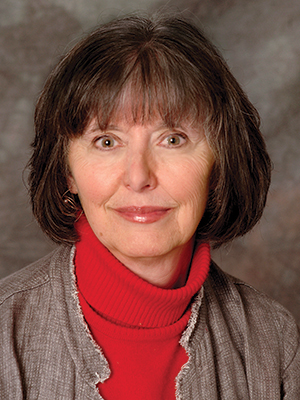
Hester Hill Schnipper Photo courtesy of Beth Israel Deaconess Medical Center
MANY PEOPLE are shocked to discover that the days, weeks and even months after cancer treatment is over can be more challenging than the treatment itself. Of course, the physical insults lessen, and we gradually regain energy and, in cases where treatment involves some types of chemotherapy, hair. The emotional fallout, however, persists long after surgery, radiation or chemotherapy.
It will take at least as long as the total duration of your treatment to feel truly physically and psychologically well. While you will make slow but steady progress, setbacks and worries will be mixed in with the delights of post-treatment milestones, such as when you are finally able to stay awake past 9 p.m. or get a first haircut.
Most likely, your family and friends won’t get it. They will expect you to be back to normal almost instantly, as they assume that the cancer is in the past. The reality is you may feel very alone—frustrated by a slow recovery and weighed down by ongoing worries.
Your goal is to accept these inevitable fears and live as though the cancer will never return. If your cancer does come back, you will have to deal with it then. But worrying about that possibility will only diminish your life. These strategies should help:
1) Lower your expectations and be gentle with yourself. You do not have to be perfect.
2) Don’t rush it. Remember that recovery is going to take months.
3) Move away from people who are negative. Nurture relationships that bring you happiness.
4) Anticipate having at least one medical scare. Odds are that it will turn out to be nothing.
5) If you have not been happy with your doctors, consider making a change.
6) If you are interested in complementary therapies, now is the time to try them because they won’t interfere with your treatment. Remember, however, if something seems too good to be true, it probably is.
7) Exercise. Regular exercise will help overall health and mood, and may help reduce the risk of recurrence.
8) Pay attention to your diet. You will feel best if you eat healthy foods, but you should also splurge on occasion.
9) Place at least one pleasurable thing on your calendar every day.
10) Find things to celebrate. Honor extraordinary and even ordinary moments, for example, the season’s first daffodil or the day you’re able to ditch your wig.
11) If possible, plan a vacation. A change of scenery will remind you that the world is large.
12) Find a cancer buddy, support group or therapist to talk to about your feelings during recovery.
13) If you think you might be depressed, find a therapist who has experience working with cancer survivors, or call the nearest cancer center or large medical center and ask to speak to an oncology social worker (www.aosw.org). Even a few sessions can make a big difference.
Cancer Today magazine is free to cancer patients, survivors and caregivers who live in the U.S. Subscribe here to receive four issues per year.




